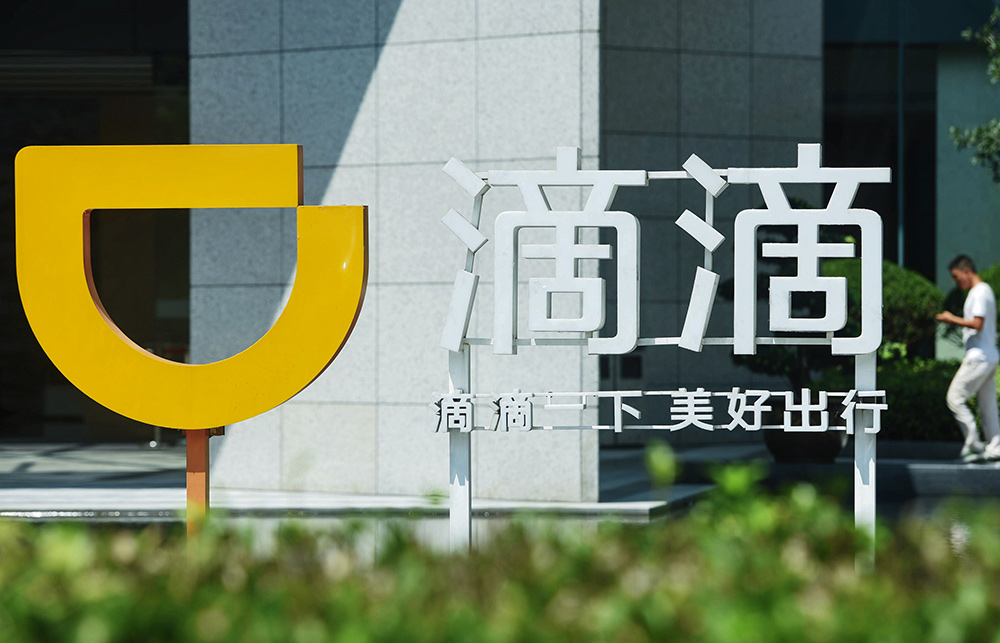
7月8日,滴滴出行官方发表声明称,该公司已经和央行达成了“战略伙伴”关系,未来,央行的数字货币计划将会通过滴滴平台进行试点及推广,但滴滴尚未公开该项目的启动日期及其具体实行细节。
自2014年以来,中国人民银行一直致力于研究全国性的数字货币项目,并提出了DC/EP的概念,即数字货币和电子支付体系。从去年起,央行渐渐开始加大了数字货币项目的推广力度。
央行牵手滴滴,必然有自己的道理。无论是滴滴庞大的客户群体,还是现有的数字支付基础,抑或是其驳杂的出行服务,都使它成为了助力数字货币落地的不二之选。在全球范围内,滴滴的用户超过了5.5亿,其中大部分来自中国,该公司更是自称已经占领中国网约车市场近90%的份额。
一直以来,滴滴都被称作是“中国的Uber”,但事实上,它的服务范围要比Uber更广。除了顺风车服务,它还提供出租车服务、拼车服务、货物运输及递送服务等等,甚至还拥有一家主攻自动驾驶业务的子公司。这家子公司在今年5月又获批了超5亿美元的测试及开发资金。
如果滴滴开始使用数字货币,那么其5亿用户也都会顺其自然地开始使用央行的电子支付系统。除此以外,滴滴还涉足了外卖及快递领域,这意味着这些行业也会被电子支付所辐射,成为央行数字货币的试点场景之一。
从今年4月起,滴滴就一直在关注数字货币领域。滴滴国际事业部首席运营官仇广宇在接受路透社采访时说:“如果滴滴能收购一些拥有银行执照或金融技术的支付公司并与其进行合作的话,滴滴的全球业务发展也会随之获益。”不过,他并没有具体解释这些优势的所在之处。
对于央行而言,与滴滴达成合作后,数字货币才首次真正进入了国民的日常生活当中。今年5月,苏州市的一个区政府也曾经尝试过用数字货币来支付一些公共部门员工的旅游补贴,但仅仅局限在小范围内。另据财新网报道,除了滴滴出行以外,美团、B站也将陆续与央行数字货币项目展开合作。
所有的数字货币都会由央行统一发行并提供技术支持。据《南华早报》5月的报道,用户只需要通过下载央行专属的App,就能够把银行账户中的普通人民币兑换为电子人民币,即便是没有银行账户的用户,也可以建立自己的数字货币钱包。
其实中国用户们早就在使用电子钱包了,只不过是通过微信支付及支付宝来实现的。目前,尚不清楚数字货币是会通过现有的微信和支付宝,还是会通过单独的央行钱包分发给滴滴用户。
滴滴出行成立于2012年,在这八年中,它打败了无数的竞争对手,收购了Uber中国,一举成为中国市场上最主流的叫车应用程序,为用户提供着最全面的出行服务。如今,滴滴位列中国最大的科技公司之一,并获得了包括苹果、阿里巴巴、腾讯、日本软银等企业在内的投资资金,其估值目前已达530亿美元。
不过在新冠疫情初期,由于中国的隔离政策,滴滴出行的客流量同样受到了冲击。为了挽回用户,该公司投资了1400多万美元,在数百万辆汽车上安装了塑料隔板,借此保护乘客的安全。6月初,滴滴的首席执行官程维表示,公司当月的叫车需求已经恢复至去年的同期水平。(财富中文网)
编译:陈怡轩
7月8日,滴滴出行官方发表声明称,该公司已经和央行达成了“战略伙伴”关系,未来,央行的数字货币计划将会通过滴滴平台进行试点及推广,但滴滴尚未公开该项目的启动日期及其具体实行细节。
自2014年以来,中国人民银行一直致力于研究全国性的数字货币项目,并提出了DC/EP的概念,即数字货币和电子支付体系。从去年起,央行渐渐开始加大了数字货币项目的推广力度。
央行牵手滴滴,必然有自己的道理。无论是滴滴庞大的客户群体,还是现有的数字支付基础,抑或是其驳杂的出行服务,都使它成为了助力数字货币落地的不二之选。在全球范围内,滴滴的用户超过了5.5亿,其中大部分来自中国,该公司更是自称已经占领中国网约车市场近90%的份额。
一直以来,滴滴都被称作是“中国的Uber”,但事实上,它的服务范围要比Uber更广。除了顺风车服务,它还提供出租车服务、拼车服务、货物运输及递送服务等等,甚至还拥有一家主攻自动驾驶业务的子公司。这家子公司在今年5月又获批了超5亿美元的测试及开发资金。
如果滴滴开始使用数字货币,那么其5亿用户也都会顺其自然地开始使用央行的电子支付系统。除此以外,滴滴还涉足了外卖及快递领域,这意味着这些行业也会被电子支付所辐射,成为央行数字货币的试点场景之一。
从今年4月起,滴滴就一直在关注数字货币领域。滴滴国际事业部首席运营官仇广宇在接受路透社采访时说:“如果滴滴能收购一些拥有银行执照或金融技术的支付公司并与其进行合作的话,滴滴的全球业务发展也会随之获益。”不过,他并没有具体解释这些优势的所在之处。
对于央行而言,与滴滴达成合作后,数字货币才首次真正进入了国民的日常生活当中。今年5月,苏州市的一个区政府也曾经尝试过用数字货币来支付一些公共部门员工的旅游补贴,但仅仅局限在小范围内。另据财新网报道,除了滴滴出行以外,美团、B站也将陆续与央行数字货币项目展开合作。
所有的数字货币都会由央行统一发行并提供技术支持。据《南华早报》5月的报道,用户只需要通过下载央行专属的App,就能够把银行账户中的普通人民币兑换为电子人民币,即便是没有银行账户的用户,也可以建立自己的数字货币钱包。
其实中国用户们早就在使用电子钱包了,只不过是通过微信支付及支付宝来实现的。目前,尚不清楚数字货币是会通过现有的微信和支付宝,还是会通过单独的央行钱包分发给滴滴用户。
滴滴出行成立于2012年,在这八年中,它打败了无数的竞争对手,收购了Uber中国,一举成为中国市场上最主流的叫车应用程序,为用户提供着最全面的出行服务。如今,滴滴位列中国最大的科技公司之一,并获得了包括苹果、阿里巴巴、腾讯、日本软银等企业在内的投资资金,其估值目前已达530亿美元。
不过在新冠疫情初期,由于中国的隔离政策,滴滴出行的客流量同样受到了冲击。为了挽回用户,该公司投资了1400多万美元,在数百万辆汽车上安装了塑料隔板,借此保护乘客的安全。6月初,滴滴的首席执行官程维表示,公司当月的叫车需求已经恢复至去年的同期水平。(财富中文网)
编译:陈怡轩
Chinese ride-hailing giant Didi Chuxing Technology Co. will test a pilot version of China’s digital currency, according to a company statement on July 8 that announced a “strategic partnership” with the central bank’s Digital Currency Research Institute. The launch date and other specifics of the Didi project are not publicly known.
The People’s Bank of China (PBOC), the country’s central bank, has been researching a national digital currency known as Digital Currency Electronic Payment (DCEP) since 2014 and ramped up its efforts to roll it out last year.
Didi’s huge customer base, existing digital payment infrastructure, and range of services make it an ideal platform for the digital currency’s biggest trial so far. Didi has more than 550 million users worldwide, most of them in China; it claims more than 90% of China’s ride-hailing market.
Didi is often described as “China’s Uber,” but its services are broader than private car ride-hailing. It offers taxi-hailing, carpooling, freight transport, delivery, and logistics services, and has an autonomous driving subsidiary that received more than $500 million in funding in May for testing and development.
Launching the currency on the Didi mobile app would automatically place the payment system directly in the pockets of half a billion Chinese citizens. Since Didi offers food and merchant delivery services as well as car- and taxi-hailing, the currency could be trialed across those sectors, too.
Didi has been eyeing an expansion into digital payments since at least April, when Tony Qiu, chief operating officer of Didi’s international operations, told Reuters that “acquiring and working with payment companies which have the banking license, payment, or financial technologies would bring advantages to Didi’s global business.” Qiu did not elaborate on what those advantages were.
The PBOC’s pilot program with Didi will be one of the first real-world rollouts of China’s digital currency. A district in the Chinese city of Suzhou used the currency in May to pay public sector workers part of their travel subsidies.
The digital currency will be backed and issued by China’s central bank. When launched, customers will be able to link their bank card to a PBOC app that will enable them to convert the yuan in their bank account to digital yuan, the South China Morning Post reported in May. People without bank accounts will also be able to set up digital currency wallets.
Currently, users can pay for Didi services through Tencent’s WeChat Pay and Alibaba’s Alipay, both digital wallets. It’s not yet known whether the digital currency would be distributed to Didi users through these existing digital wallets or via a separate central bank wallet, but existing reliance on such wallets means consumers are primed to make digital payments.
Since its founding in 2012, Didi has beaten out the competition—merging with local rivals and acquiring Uber China—to emerge as China’s primary ride-hailing app and on-demand transportation service. Didi is one of China’s biggest tech companies, with financial backing from Apple, Alibaba Group, Tencent Holdings, and Japan’s SoftBank Group. It has an estimated valuation of around $53 billion.
Didi’s daily passenger numbers dropped early this year as coronavirus lockdowns swept across China and people stayed in their homes. The company worked hard to bring customers back, and invested over $14 million to install protective plastic dividers in its millions of cars to prevent the spread of the virus and ensure passenger safety. Didi’s chief executive in early June said hailing requests that month had returned to the level of the same period the year before.






